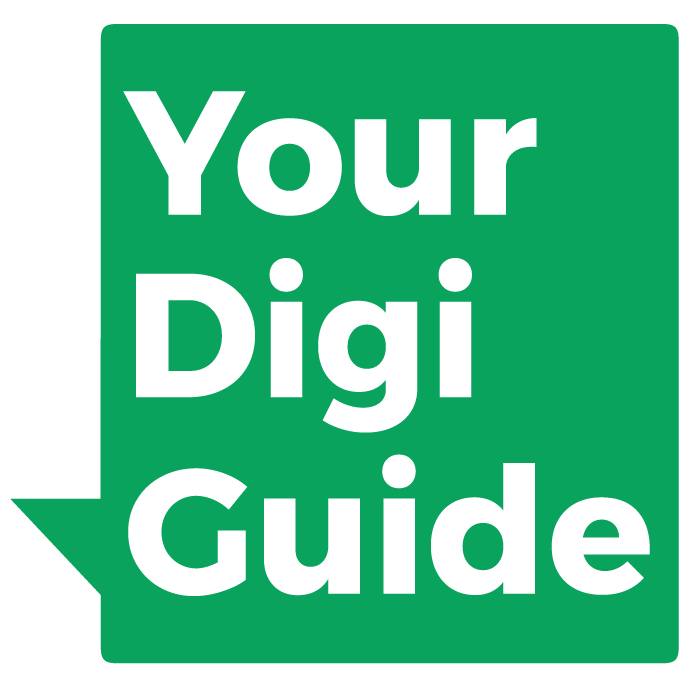How automation
can help your business
Once you have a CRM and you’ve managed to centralize your contacts in one place and you’re starting to see some engagement; you’re now ready to automate some of the actions that you perform with your leads and your existing customers. At this point, it’s time to consider automation.
This blog is the second in a series. If you don’t know the importance of having a CRM yet, please check out my earlier post that covers why you should have a CRM in your business.
We might have the tendency to think the word “automation” has a bad connotation, but when you’re talking about automation for your business, it is actually simplifying and streamlining certain processes within your business to better serve your customers more efficiently by automating tasks that otherwise someone within your organization would have to handle manually. Automation can be applicable in many areas of your business, including sales, marketing, and contact relationship management.
Putting Automation into Practice
For an example, let’s say you have a list of clients that you need to engage once a week or once a month with a reminder that they need to perform a task; imagine if this is a weekly requirement, you or someone in your company would have to pull up an email manually each time to reach the customer. Now envision using automation for this reminder; each client could be added to a list of clients that receive this automated reminder. If this list of clients is a dynamic list, meaning that the list is constantly growing, instead of having to send a new email to every new client added to the list, the automated system would recognize the new clients on the list and automatically include them in the automated reminder email based on the parameters you have set up.
A second example that’s applicable for your sales team is when we consider that with today’s digital noise, you often need a lot of interactions with potential customers before you get a response. With automation, you could have an email series or sequences already created and ready to send to prospective clients that are sent a few days apart. With automation, you can even personalize them if you would like. You have the ability to have different types of automations set up for different situations.
I think one of the biggest keys in automation is that the system is doing the remembering for you. So it’s not just about the time you save in not doing the task manually, it’s that we tend to forget all the to-dos on our list, but machines almost never fail in the remembering sense. In creating automations, all you need to do is monitor the performance of the automations and make adjustments as you go.
Benefits of Automation
A really practical benefit of automation is that you can include a meeting link in the automation where leads or current clients can book a time slot in your calendar to meet one-on-one. This is personally one of my favorite assets of automation. I include a meeting link in my email signature so clients can quickly book any specific time I have available without back and forth emails, streamlining the process.
One of the biggest things I want to point out about automation though is not just the benefit of efficiency, but that automation is really a key component of nurturing the relationship with your customers at all stages of their journey. If you’ve managed to gather your leads in your CRM and people are subscribing to your blogs, downloading demos, connecting with you at events, etc – maybe not every lead, or every contact, or every person you’ve interacted with is ready to buy your product or service in the moment you encounter them, but that doesn’t mean they will never buy from you, they just might not be ready at this moment.
There’s a saying, “the eyes you don’t see you tend to forget”, and this is valid in business as well. If you don’t keep your leads warm and interact with them on a regular basis, they will eventually buy from someone who is more active. Here’s where the automation process shines; automation helps remind your leads that your business is here, ready to help, and ready to be included in their decision-making process.
Tools for Automation
HubSpot
I’m personally fond of HubSpot marketing and sales automation tools. Their system caters to a lot of needs of medium-size to enterprise-level businesses. Their tool does come with a price, so you need to be prepared and have the right size business to benefit from their automation tools.
ActiveCampaign
For small businesses, I recommend ActiveCampaign as it also has quite a few of the same functionalities, and though not as advanced, it’s well-designed and more economical for a small-sized business. For a deeper dive into Active Campaing’s automation features please go here.
Streamline and Grow
Automation is something you really need to consider and have in place when planning for the growth of your business. As your business grows, automation will become almost inevitable as it will help you to streamline, simplify, and tackle repetitive tasks. You will discover that automation is essential in helping to take care of your leads much better by giving you a more comprehensive way to nurture and grow those relationships long-term.
This is a DigiExpert post
Only verified DigiExperts are able to post on our platform.
If you have further questions, need individual help on the topic in this post or related topics, feel free to reach out to the DigiExpert directly.

Constantin Buda
E-Mail Marketing, Content Marketing
Constantin Buda is a Growth Strategist helping companies translate complex, high-tech information into marketing stories that drive sales.
